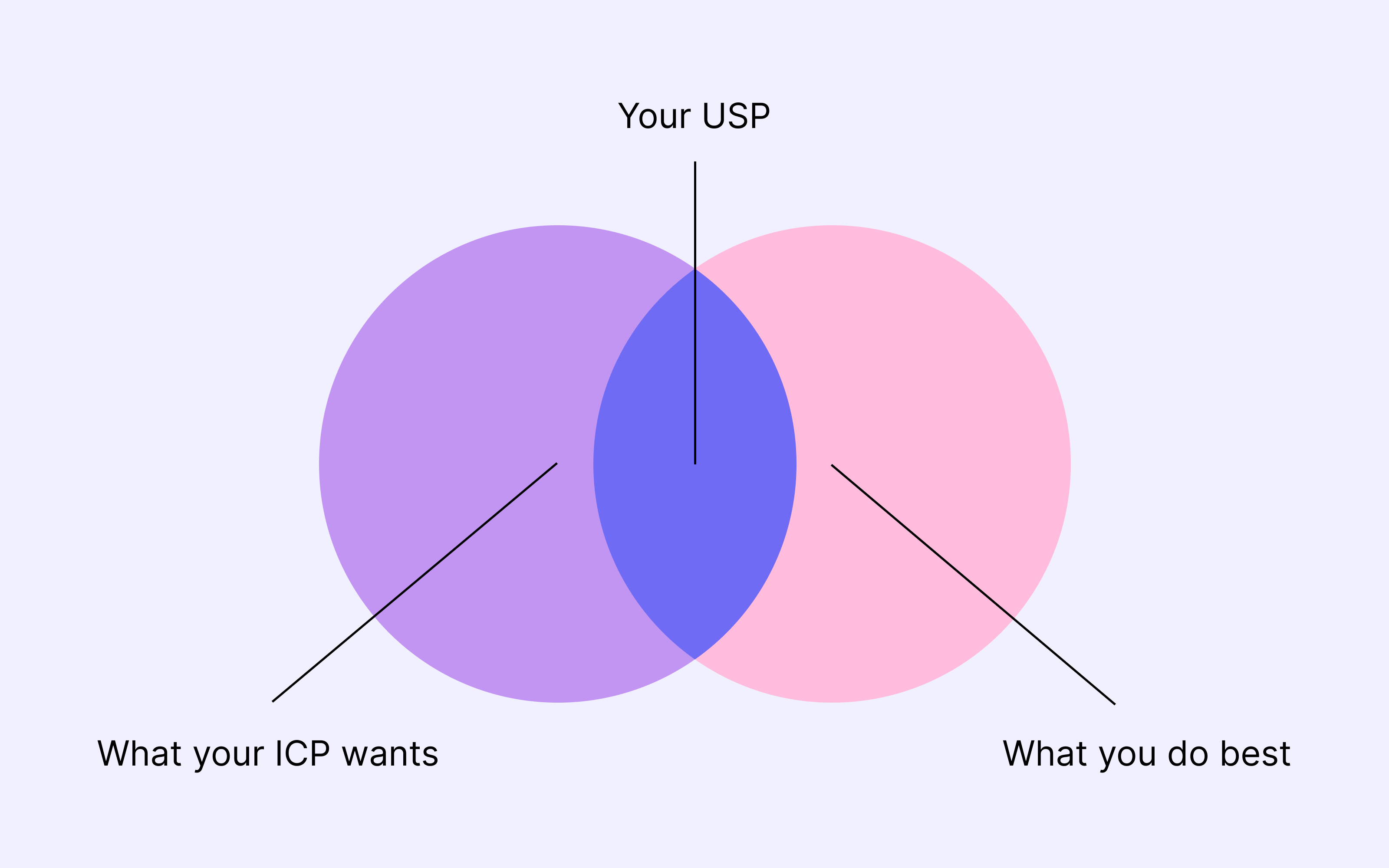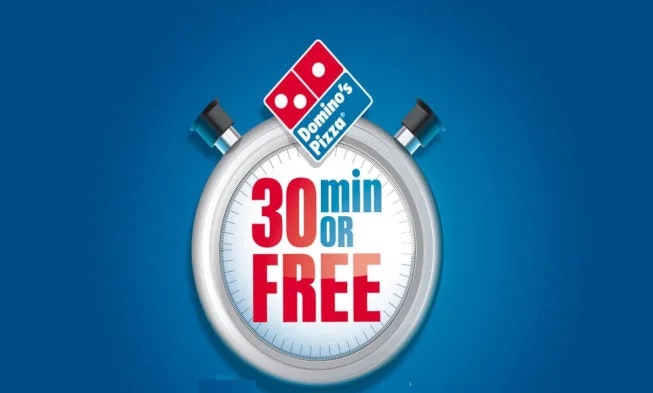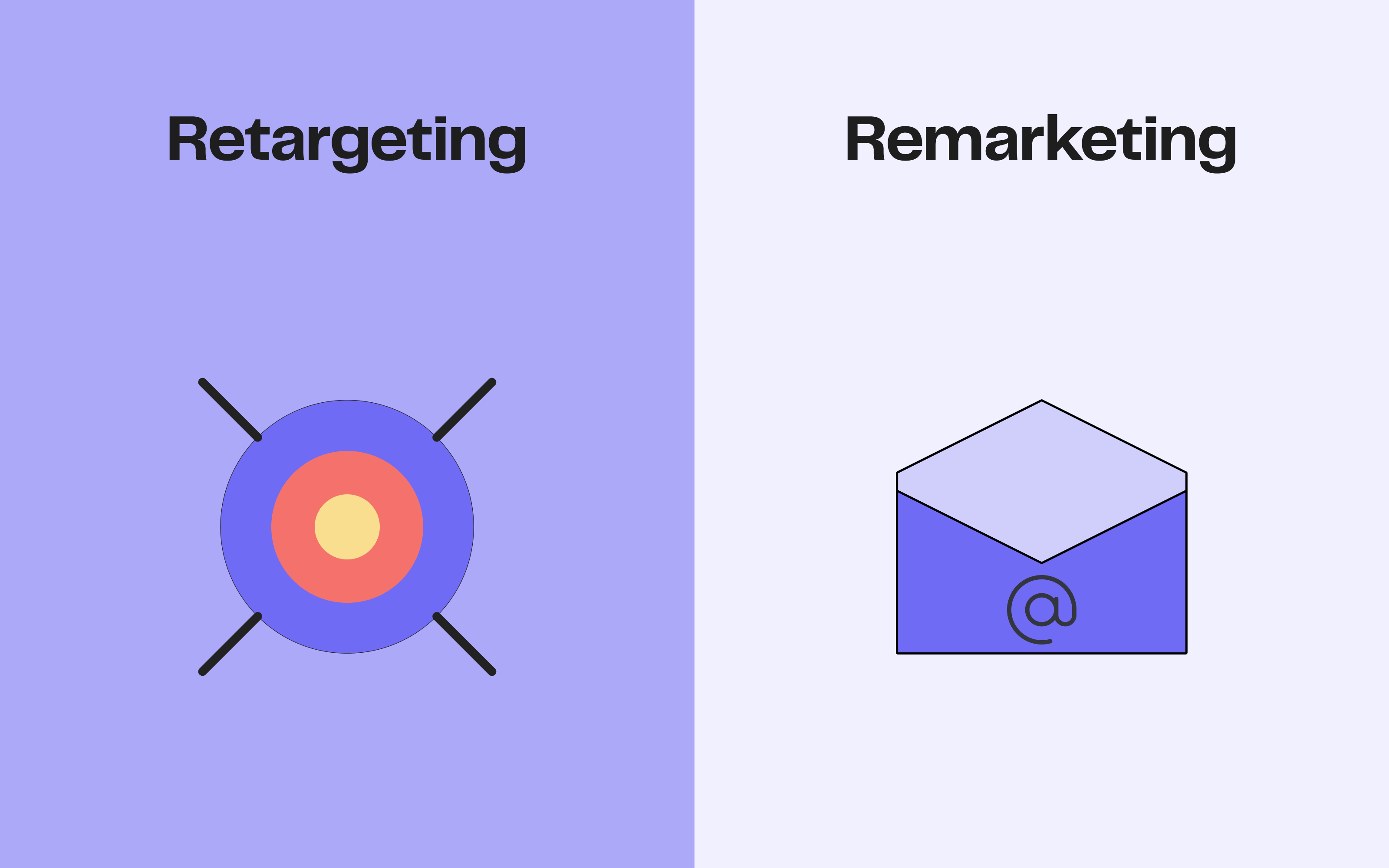
What is a Unique Selling Proposition (USP)?
5min • Last updated on Sep 22, 2025

Alexandra Augusti
Chief of Staff
Who hasn’t spent an afternoon wandering through the aisles of IKEA? A unique experience, designed down to the last detail: an immersive journey, inspiring room setups, a break at the cafeteria, children’s play areas, Swedish specialities on the way out… 🇸🇪
This differentiation goes far beyond store layout. It is carried by a strong customer promise. The Scandinavian brand makes design accessible to everyone, with an approach rooted in real life. Everything is designed to turn furniture into an everyday product — affordable and desirable.
In the world of marketing and sales, positioning yourself in a unique way is essential to stand out from the competition.
Key Takeaways:
The USP (Unique Selling Proposition) refers to what makes a brand, service, or product unique and superior in the eyes of the customer.
It is a central pillar of an effective marketing strategy. A clear and distinctive USP helps stand out in a competitive market and attract the right customers.
A strong USP is built at the intersection of three elements: what your customers want, what you do well, and what competitors don’t do.
Brands such as IKEA, Apple, or Nespresso illustrate the power of a simple, strong, and consistent promise over time.
👉🏼 Discover what a USP is, why it’s essential for your business, and how to build your own through concrete examples.
A definition of the Unique Selling Proposition
The USP is a fundamental pillar of marketing. Conceived in the 1940s by Rosser Reeves, a pioneer of television advertising, it provides a clear way to distinguish a company from its competitors. This concept plays a key role in positioning a brand within its market.
Structured around three fundamental pillars - unique, selling, and proposition - a USP must be:
Unique: By highlighting an offer or benefit not available elsewhere, the company presents a distinct value, ensuring a proposition undeniably unique / better compared to competitors.
Selling: The core of a USP lies in its ability to convince. It answers a simple yet crucial question: “Why choose this product or service over another?” This decisive argument is what triggers preference and purchase.
Proposition: An effective USP is built on a clear and impactful promise. It must capture attention, stick in people’s minds, and prompt action. Its strength lies in expressing, in just a few words, a value proposition the customer can easily remember.
Ultimately, the USP allows the company to highlight a unique and easy-to-remember selling point, drawing attention to the superiority of its offer over the competition.
The importance of a Unique Selling Proposition for your business
Having a unique selling proposition (USP) is fundamental for multiple reasons that directly influence the performance and success of your business:
Standing out in a competitive market: A USP allows your brand to stand out. It highlights the uniqueness of your offer, which is crucial to capture customer attention and build loyalty in a competitive market.
Driving purchase decisions and promoting the selection of your offer: A well-defined and convincing USP encourages consumers to choose your product or service and thus boosts acquisition. By presenting a unique and attractive benefit, you increase the likelihood that prospects will choose your offer over a competitor’s. It must be engaging enough to push for action.
Strengthening customer loyalty: A clear USP fosters loyalty. When a customer understands what makes your offering unique and superior to that of competitors, they are more likely to remain loyal to your brand and recommend it to others.
Aligning the company's direction: A USP serves as a tool to align operational teams (sales, marketing, etc.) towards a common vision. A unified understanding of what makes your offer distinct enables consistent and effective communication, thus reinforcing your company’s overall strategy.
To make your USP resonate with your target audience, don't hesitate to use different audience strategies (retargeting, acquisition via lookalike, retention, etc.). It's important to maintain consistency across all your communication channels to strengthen the message and create a clear identity. You can also communicate the USP through the customer experience in-store or online (website / app) by offering exclusive services or special attention.
How to define your Unique Selling Proposition
Developing a methodical and targeted approach is essential to create an effective USP.
👉🏼 Here are some tips to construct a persuasive USP:
The initial step is to identify the specific benefit that customers will gain from choosing your product or service. Your USP should directly cater to the specific needs of your target audience. Instead of trying to appeal to a broad audience, it is crucial to deeply understand the problems, desires, and aspirations of your potential customers and create an offer that directly addresses them.
⚠️ A common mistake is trying to address too broad an audience. By wanting to speak to everyone, you end up speaking to no one.
Make sure your USP stands out through its clarity and simplicity. It should address your target audience’s main objection to purchasing. For example, focus on the speed of your solution if prospects often tell you they lack time. Emphasise price if that is the decisive factor.
Don't solely concentrate on the features of your product. Purchase decisions are often influenced by emotions and justified logically afterward. Highlight the emotional benefits like improved well-being or reduced stress that your product promises to offer.
In summary, focus on what makes you the best. The elements that differentiate your USP can vary depending on your offer and market, such as brand recognition, price positioning, time to results, quality, associated services, expertise, innovation, and design. Emphasise these aspects to attract customers.
To identify your unique selling points, start by analysing what your competitors do less effectively or differently.
Ask yourself the following questions:
Who is your ideal target audience?
What are their needs, challenges, and the unique value you provide?
What advantages do you offer compared to the competition?
By answering these questions, you will be able to develop a USP that accurately showcases what distinguishes your offer, making it both unique and appealing to potential customers. This USP will not only set you apart from your competitors but also encourage customers to choose your product or service.
Some Concrete Examples of USPs
Discover some great examples of Unique Selling Propositions (USPs) that have proven successful across various sectors, demonstrating different strategies for standing out.
1️⃣ Uniqueness of the offer
There are several techniques to ensure the uniqueness of your offer, for example:
Stating it explicitly, using phrases like “the only brand to” or “The only way to”
Creating a brand-specific label to ensure quality
For example, Airbnb could communicate on the uniqueness of its experiences, with a USP such as "Unique and authentic travel experiences, allowing you to live like a local anywhere in the world."
2️⃣ Differentiating elements
This strategy emphasises what sets you apart from the competition.
For instance, M&M's has long relied on its slogan "Melts in your mouth, not in your hand" to challenge the competition and highlight the ease of preservation and consuming its products.

3️⃣ Performance
Highlighting performance or results can be very persuasive. The USP of Domino’s Pizza: "Your pizza delivered in 30 minutes or less, or it's free", is a great example of this approach, reinforcing the brand's reputation for speed and reliability.
💡 At DinMo, we position ourselves as "The only Customer Data Platform implementable in 30 minutes."

4️⃣ Historical Expertise
Another strategy is to focus on exceptional expertise, especially for luxury brands. It is also possible to highlight additional services included in the offer.
For example, Rolex’s main asset lies in its unmatched Swiss craftsmanship, its timeless design, and its reputation for precision and durability, making it the ultimate symbol of luxury: "It doesn't just tell time. It tells history."

Zappos, the online shoe retailer, stands out with the USP: "Free and easy returns, with exceptional customer service." This focus on quality customer service has helped Zappos build a loyal customer base.
5️⃣ Innovation
Don't hesitate to highlight the innovative aspects of your solutions. Your competitors probably haven't thought of your offer/service yet, so make it a strength!
Tesla, a leader in the electric vehicle industry, uses the USP: "The most efficient and durable electric vehicles, designed for a greener future."

Tesla Roadster (Credit: Tesla Motors Inc.)
This blend of innovation and environmental quality attracts customers seeking sustainable and high-performing alternatives. It’s impossible to discuss innovation without mentioning Apple, which invites you to "Think Different".
The USP at the Heart of a Data-Driven Strategy
These examples show how a well-defined USP can transform customer perception and encourage them to choose your products or services over the competition.
This approach becomes even more powerful when supported by a precise use of data. In a data-driven strategy, the value proposition is built on concrete insights drawn from actual customer behaviour.
With a Customer Data Platform (CDP), brands can identify the segments most receptive to their USP, personalise messages, test different levers, and measure their impact on performance.
The USP then becomes a foundation for activation, conversion, and loyalty — all strengthened by data. By connecting the marketing promise with the right data signals, the company turns its positioning into a tangible competitive advantage.
Conclusion
Having a Unique Selling Proposition (USP) is essential for any company seeking to stand out in a highly competitive market. By highlighting what makes your product or service unique, it directly addresses the needs of your target persona and encourages consumers to commit to your offer at the moment of purchase.





















